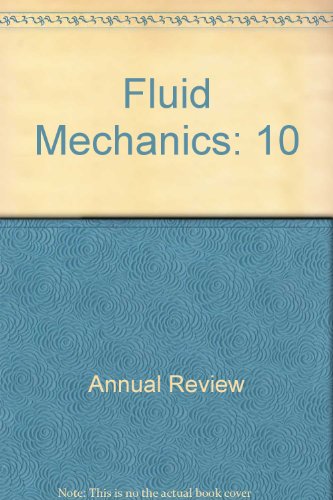Learning Nonlinear Reduced Models from Data with Operator Inference
IF 30.2
1区 工程技术
Q1 MECHANICS
引用次数: 0
Abstract
This review discusses Operator Inference, a nonintrusive reduced modeling approach that incorporates physical governing equations by defining a structured polynomial form for the reduced model, and then learns the corresponding reduced operators from simulated training data. The polynomial model form of Operator Inference is sufficiently expressive to cover a wide range of nonlinear dynamics found in fluid mechanics and other fields of science and engineering, while still providing efficient reduced model computations. The learning steps of Operator Inference are rooted in classical projection-based model reduction; thus, some of the rich theory of model reduction can be applied to models learned with Operator Inference. This connection to projection-based model reduction theory offers a pathway toward deriving error estimates and gaining insights to improve predictions. Furthermore, through formulations of Operator Inference that preserve Hamiltonian and other structures, important physical properties such as energy conservation can be guaranteed in the predictions of the reduced model beyond the training horizon. This review illustrates key computational steps of Operator Inference through a large-scale combustion example.Expected final online publication date for the Annual Review of Fluid Mechanics, Volume 56 is January 2024. Please see http://www.annualreviews.org/page/journal/pubdates for revised estimates.利用算子推理从数据中学习非线性约简模型
本文讨论了算子推理,这是一种非侵入式的约简建模方法,通过定义约简模型的结构化多项式形式来结合物理控制方程,然后从模拟训练数据中学习相应的约简算子。算子推理的多项式模型形式具有足够的表现力,可以涵盖流体力学和其他科学与工程领域中广泛的非线性动力学,同时仍然提供高效的简化模型计算。算子推理的学习步骤植根于经典的基于投影的模型约简;因此,一些丰富的模型约简理论可以应用于通过算子推理学习的模型。这种与基于预测的模型约简理论的联系,为得出误差估计和获得改进预测的见解提供了一条途径。此外,通过保留哈密顿和其他结构的算子推理公式,可以保证简化模型在训练视界之外的预测中具有重要的物理性质,例如能量守恒。本文通过大规模燃烧实例说明了算子推理的关键计算步骤。预计流体力学年度评论的最终在线出版日期,第56卷是2024年1月。修订后的估计数请参阅http://www.annualreviews.org/page/journal/pubdates。
本文章由计算机程序翻译,如有差异,请以英文原文为准。
求助全文
约1分钟内获得全文
求助全文
来源期刊
CiteScore
54.00
自引率
0.40%
发文量
43
期刊介绍:
The Annual Review of Fluid Mechanics is a longstanding publication dating back to 1969 that explores noteworthy advancements in the field of fluid mechanics. Its comprehensive coverage includes various topics such as the historical and foundational aspects of fluid mechanics, non-newtonian fluids and rheology, both incompressible and compressible fluids, plasma flow, flow stability, multi-phase flows, heat and species transport, fluid flow control, combustion, turbulence, shock waves, and explosions.
Recently, an important development has occurred for this journal. It has transitioned from a gated access model to an open access platform through Annual Reviews' innovative Subscribe to Open program. Consequently, all articles published in the current volume are now freely accessible to the public under a Creative Commons Attribution (CC BY) license.
This new approach not only ensures broader dissemination of research in fluid mechanics but also fosters a more inclusive and collaborative scientific community.

 求助内容:
求助内容: 应助结果提醒方式:
应助结果提醒方式:


